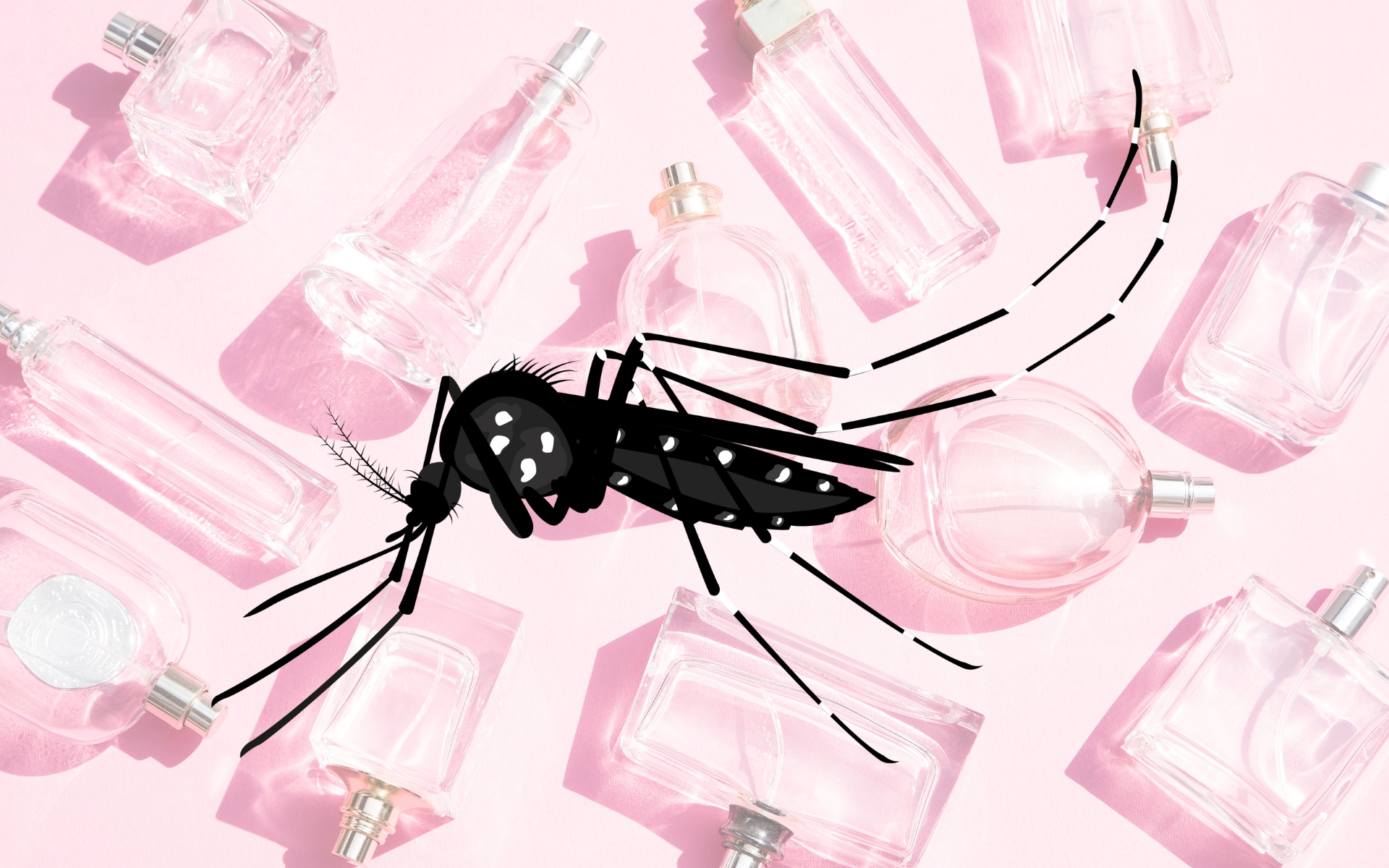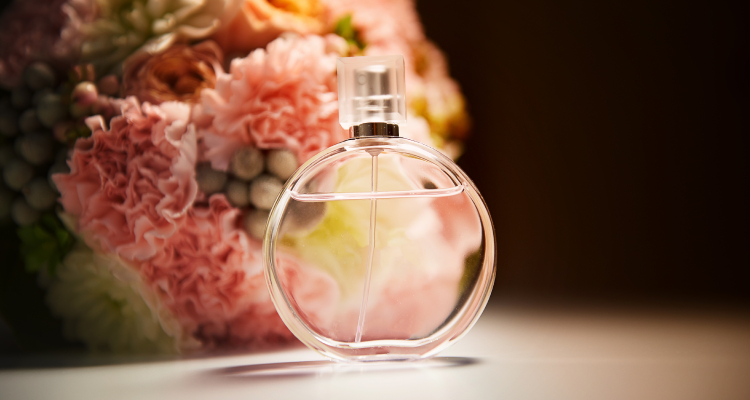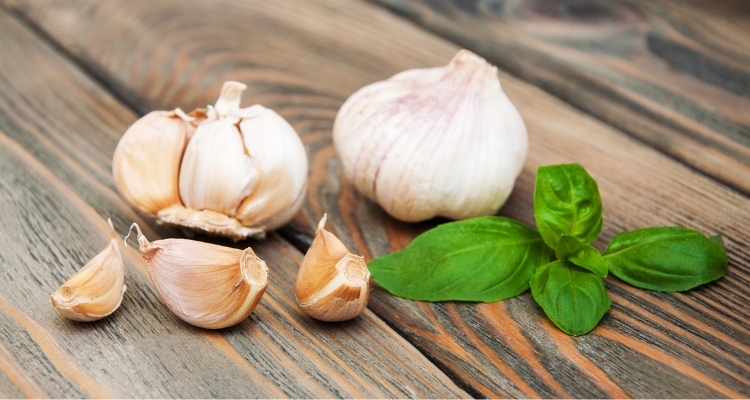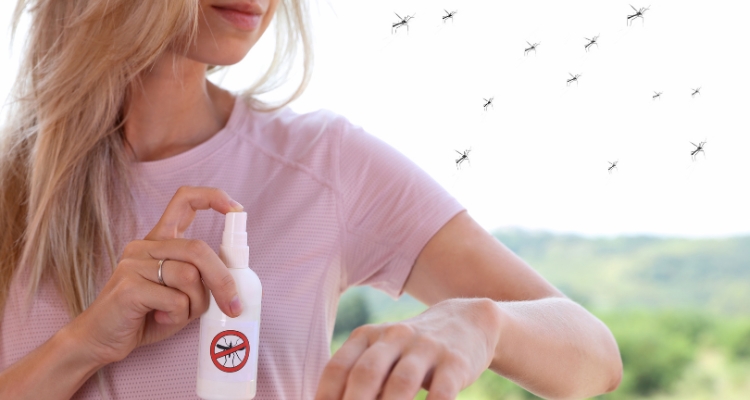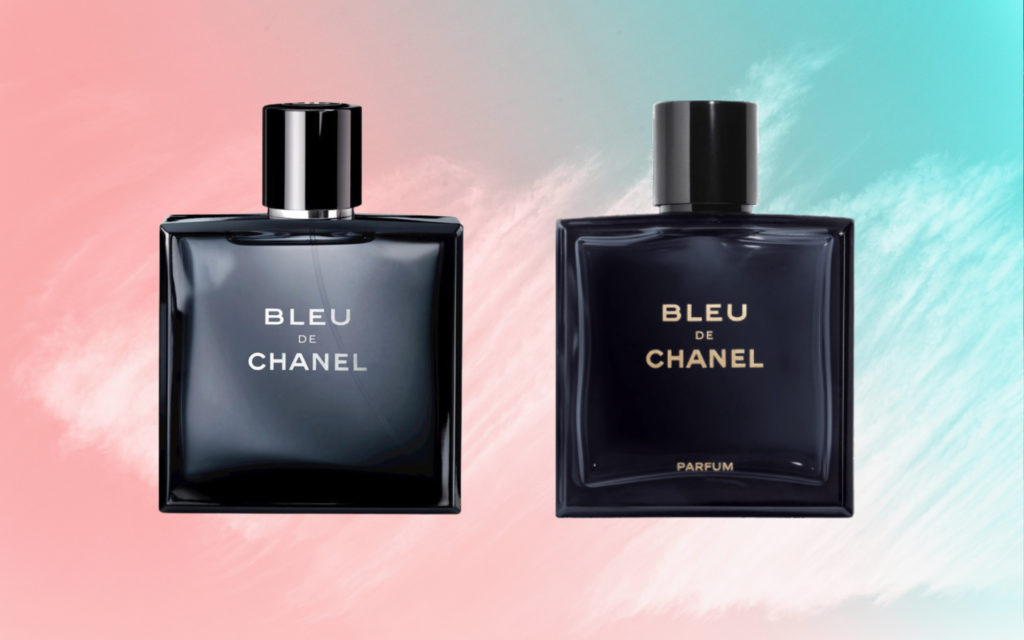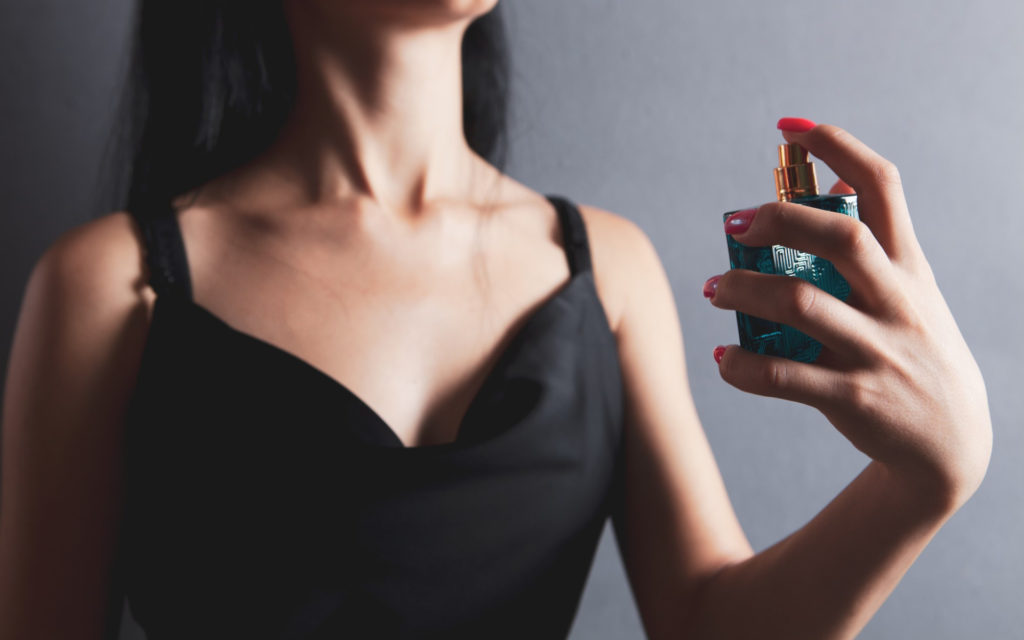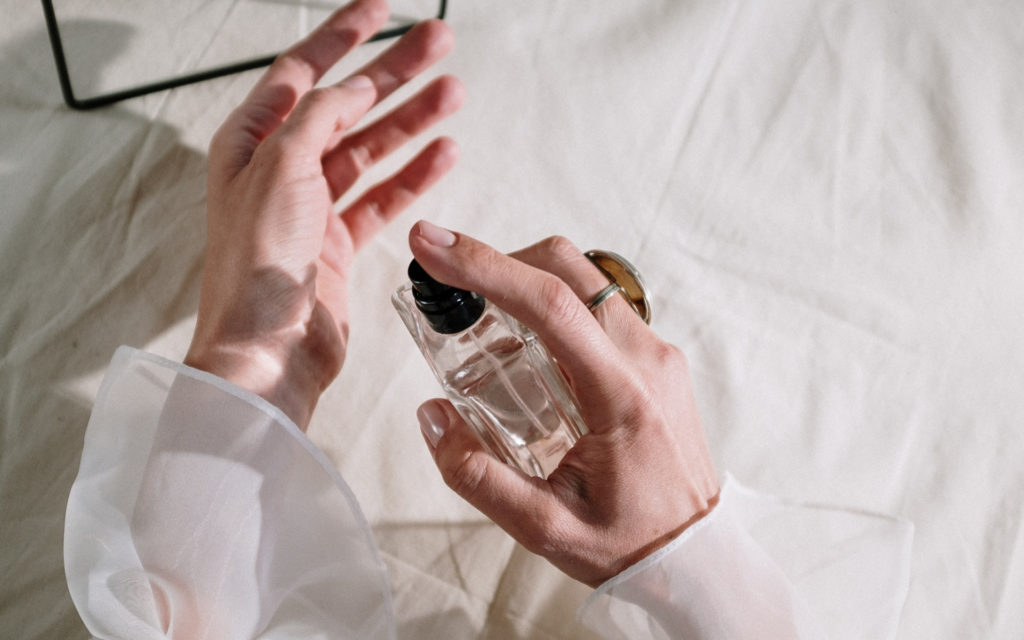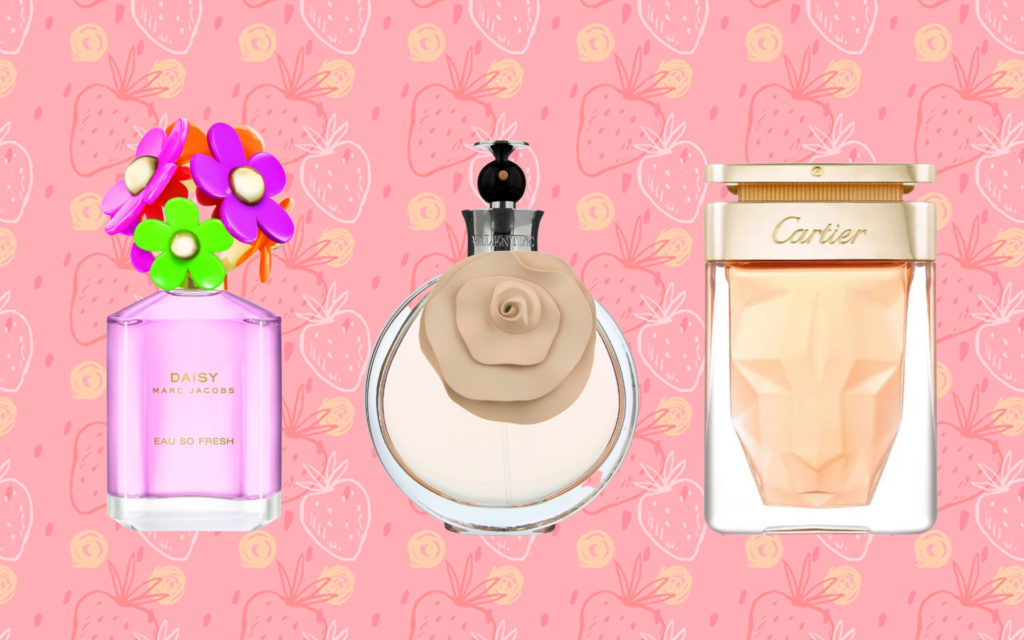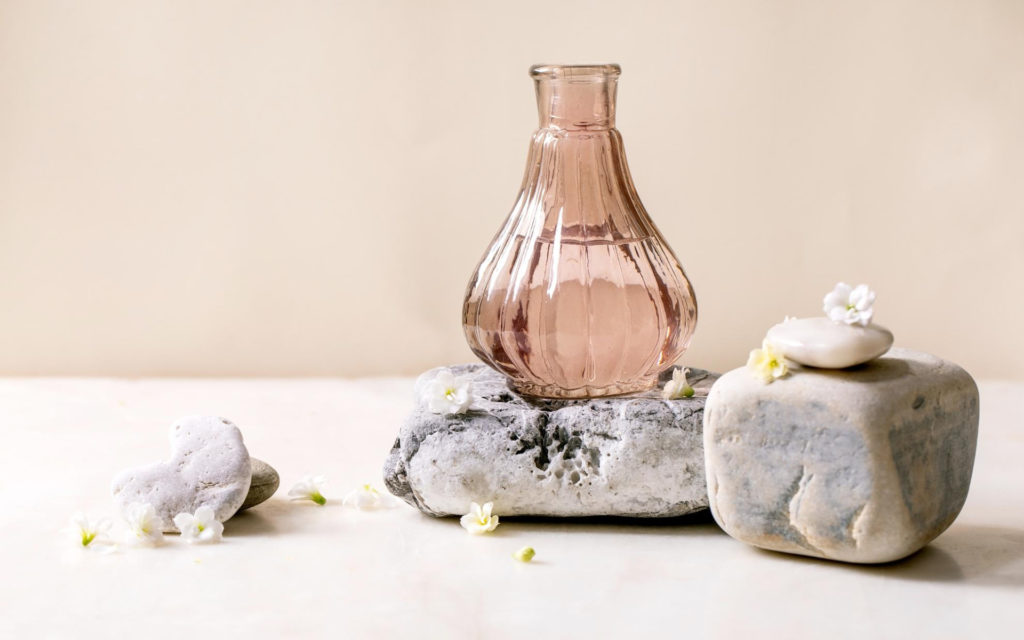Ever been swarmed by mosquitoes at a gathering after spritzing on your favorite perfume?
Believe it or not, certain fragrances can indeed draw these bloodsucking pests closer.
This article will debunk the mystery as to why your beloved scent may actually be an alluring call for bugs and mosquitos.
Read on if you want to smell good without turning into a mosquito magnet!
Will My Perfume Attract Insects?
Certain perfumes and fragrances can indeed attract insects, particularly if they contain sweet or floral notes that mimic the scents of flowers and fruits.
Insects, such as bees, wasps, and mosquitoes, are naturally drawn to these scents because they associate them with sources of nectar and food.
Additionally, some fragrances may contain ingredients that are attractive to insects.
Why Mosquitos are Attracted To Perfume
Olfactory Receptors in Mosquitoes
Mosquitoes have specialized olfactory receptors that enable them to detect carbon dioxide and lactic acid from our skin.
These tiny sensors, located primarily in their antennae, help mosquitoes pinpoint where a potential meal is.
They can sense these chemical signals from up to 100 feet away! Surprisingly, it’s not just body odors that draw them in but also floral and sweet scents.
Those fancy perfumes you love may be doing more than making you smell good; they might be turning you into a mosquito magnet!
Floral and Sweet Notes in Perfumes
Perfumes with floral and sweet notes are beloved by many for their pleasant aromas. However, these scents can also attract bugs and mosquitoes.
The fragrance from perfumes containing floral and sweet notes can act as an attractant to these bloodsucking pests.
Mosquitoes have olfactory receptors that are specifically designed to detect certain scents, including the fragrances found in perfumes. This makes them more likely to be drawn to individuals wearing these types of scented products.
So, while floral and sweet notes may be appealing to us humans, they can unfortunately make us more attractive to bugs and mosquitos as well.
Can Certain Perfumes Repel Mosquitoes?
Some perfumes and fragrances may have ingredients that can help repel mosquitoes to a certain extent, but they are not as effective as dedicated mosquito repellents.
Fragrances that contain certain essential oils known for their mosquito-repelling properties can provide a mild level of protection.
Ingredients That Repel Mosquitos
Citronella: Citronella is a well-known natural mosquito repellent. Some perfumes and body sprays include citronella as an ingredient to help deter mosquitoes.
Lemon Eucalyptus: Lemon Eucalyptus oil is another effective mosquito repellent. Perfumes or fragrances that contain this oil may provide some protection.
Lavender: Lavender oil is known for its pleasant scent and mild mosquito-repelling properties. Perfumes with lavender notes may offer limited mosquito deterrence.
Peppermint: Peppermint oil has a strong scent that mosquitoes dislike. Perfumes that include peppermint as an ingredient may have some repellent effect.
Other Scents that Mosquitoes Hate
Garlic
Garlic is known for its strong aroma and pungent flavor, but did you know that it can also repel mosquitoes? Yes, those bloodsucking insects have a strong dislike for the smell of garlic.
When you consume garlic or use garlic-based products like oils or sprays, the scent emitted by your body becomes unappealing to mosquitoes.
So if you’re looking for a natural way to keep these pesky bugs at bay, try incorporating more garlic into your diet or using garlic-infused products as part of your bug-repellent routine.
Basil
Basil is not only a popular herb in cooking, but it can also help keep mosquitoes at bay.
The strong scent of basil acts as a natural mosquito repellent, deterring these bloodsucking pests from getting too close.
You can plant basil in your garden or place potted basil plants near doors and windows to help keep mosquitoes away. Additionally, you can rub fresh basil leaves on your skin to take advantage of its bug-repelling properties.
So next time you’re enjoying some pesto pasta or Caprese salad, know that you’re not just satisfying your taste buds – you’re also keeping those annoying mosquitoes at bay!
Lemongrass
Lemongrass is a scent that mosquitoes absolutely hate. Its strong citrus aroma repels these bloodsucking pests, making it an effective natural insect repellent.
You can use lemongrass essential oil or products containing lemongrass to keep mosquitoes away.
It’s a great alternative to chemical-based bug sprays and has the added bonus of smelling fresh and pleasant. So, if you want to enjoy the outdoors without worrying about mosquito bites, give lemongrass a try!
Neem
Neem, a plant native to India, has long been known for its insect-repellent properties.
The oil extracted from neem seeds contains compounds that insects find repulsive. This makes neem an effective natural repellent against mosquitoes and other bugs.
You can use neem-based products like sprays or lotions to keep these bloodsucking pests at bay.
Neem leaves can also be burned as incense or used in the form of essential oil to create a protective barrier against mosquito bites.
When it comes to keeping bugs and mosquitos away, neem is definitely worth considering as a safe and natural alternative to chemical repellents.
Tips to Prevent Mosquito Bites
Wear light-colored clothes
Wearing light-colored clothes can help to reduce the attraction of mosquitoes. Mosquitoes are drawn to dark colors because they provide a contrast against the surrounding environment.
By opting for lighter shades such as white or pastels, you can make it harder for mosquitoes to spot you and decrease your chances of getting bitten.
So, next time you’re planning an outdoor adventure, remember to wear light-colored clothes to help keep those pesky bugs away.
Avoid peak mosquito activity hours
Mosquitoes are most active during certain times of the day. To minimize your chances of getting bitten, it’s best to avoid being outside during their peak activity hours.
These hours typically occur in the early morning and late afternoon to evening when mosquitoes are actively searching for a blood meal.
By staying indoors or taking precautions such as using mosquito repellents and wearing protective clothing during these times, you can significantly reduce your risk of mosquito bites.
Utilize mosquito repellents
To protect yourself from mosquito bites, it’s important to utilize mosquito repellents. These products are specifically designed to keep mosquitoes away.
Look for repellents that contain ingredients like DEET or picaridin, as these have been proven effective in repelling mosquitoes.
Use fans or mosquito nets
Mosquito nets are another effective option, especially when sleeping outdoors or in areas with a high mosquito population.
These fine-meshed screens act as a physical barrier between you and the insects, keeping them at bay while allowing air to circulate freely. Whether indoors or out, fans and mosquito nets can help provide an extra layer of defense against those annoying mosquito bites.
Keep your environment clean and free of stagnant water.
To prevent the breeding of mosquitoes and other pesky bugs, it’s important to keep your environment clean and free of stagnant water.
Mosquitoes lay their eggs in standing water, so removing any potential breeding grounds is crucial.
Be sure to empty containers like flowerpots, buckets, and birdbaths regularly. Clean out clogged gutters and ensure that there are no puddles or areas where water can accumulate around your home.
Conclusion
In conclusion, the enticing allure of perfumes, particularly those with floral and sweet notes, doesn’t only captivate humans.
These fragrances can also inadvertently act as a magnet for bugs and mosquitoes.
Therefore, while perfumes enhance our personal appeal, they may also potentially increase our susceptibility to these small, unwelcome guests.
It’s an interesting intersection of the world of beauty and nature, prompting us to be mindful of our choices and their broader implications.
FAQs
Which scent attracts insects the most?
Floral scents draw in mosquitoes and other bugs because these types of scents remind them of their natural food sources like flowers.
What scent do mosquitos hate the most?
Mosquitoes dislike a variety of scents, and some natural fragrances can help deter them.
These scents include citronella, which is found in citronella candles and oil-based repellents, as well as lemon eucalyptus, lavender, peppermint, and rosemary essential oils.
These fragrances can mask the scent of carbon dioxide and body odors that attract mosquitoes, making it harder for them to locate and bite humans.
Does hand sanitizer repel mosquitoes?
Hand sanitizer, particularly alcohol-based hand sanitizers, may have a mild mosquito-repelling effect due to their alcohol content.
However, the level of mosquito protection provided by hand sanitizer is typically quite low and not as effective as dedicated mosquito repellents.
